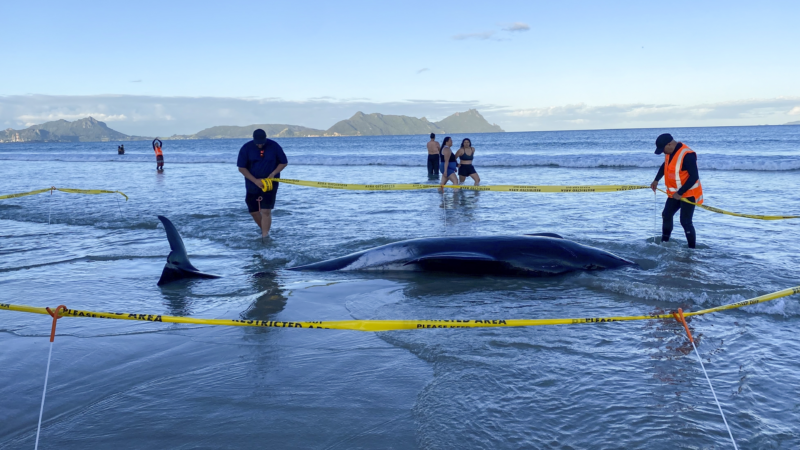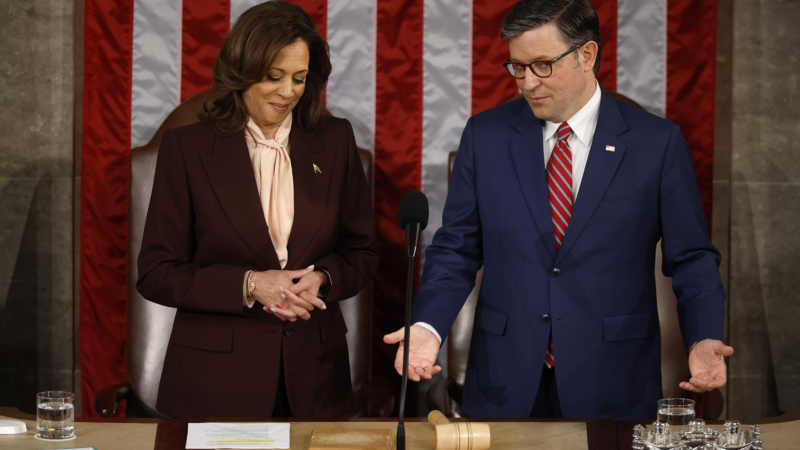New Zealanders help save about 30 whales after a pod strands on a beach
WELLINGTON, New Zealand — More than 30 pilot whales that stranded themselves on a beach in New Zealand were safely returned to the ocean after conservation workers and residents helped to refloat them by lifting them on sheets. Four of the pilot whales died, New Zealand’s conservation agency said.
New Zealand is a whale stranding hotspot and pilot whales are especially prolific stranders.
A team was monitoring Ruakākā Beach near the city of Whangārei in New Zealand’s north on Monday to ensure there were no signs of the whales saved Sunday stranding again, the Department of Conservation told The Associated Press. The agency praised as “incredible” the efforts made by hundreds of people to help save the foundering pod.
“It’s amazing to witness the genuine care and compassion people have shown toward these magnificent animals,” Joel Lauterbach, a Department of Conservation spokesperson, said in a statement. “This response demonstrates the deep connection we all share with our marine environment.”

A Māori cultural ceremony for the three adult whales and one calf that died in the stranding took place on Monday. New Zealand’s Indigenous people consider whales a taonga — a sacred treasure — of cultural significance.
New Zealand has recorded more than 5,000 whale strandings since 1840. The largest pilot whale stranding was of an estimated 1,000 whales at the Chatham Islands in 1918, according to the Department of Conservation.
It’s often not clear why strandings happen but the island nation’s geography is believed to be a factor. Both the North and South Islands feature stretches of protruding coastline with shallow, sloping beaches that can confuse species such as pilot whales — which rely on echolocation to navigate.
Under the shadow of the Jan 6. 2021 riot, Congress certifies the 2024 election
Four years after the riot at the Capitol, Congress meets under heavy security and a blanket of snow to certify the 2024 election.
We asked global thinkers how to improve life on earth in 2025. Here are their wishes
What's one thing humankind can do to help heal the world? The wishes cover everything from upholding Jimmy Carter's legacy to cleaning up Mt. Everest. Readers, we'd like to hear your wishes as well.
Lessons from self-inflicted blows to democracy in South Korea and the U.S.
The brief declaration of martial law in South Korea last month has drawn comparisons to the Jan. 6, 2021, attack on the U.S. Capitol. The attempted power grabs could hold lessons for other democracies.
‘It’s the beginning’: Demi Moore wins her first major acting award at the Golden Globes
Moore, 62, won the Golden Globe for her starring role in The Substance. She said the film is the start of a new chapter in her career: "It's just this wonderful new time of exploration and discovery."
‘A very, very small number’ of teens receive gender-affirming care, study finds
A new analysis of private insurance claims data finds less than 0.1% of youth accessed puberty blockers or hormones for gender transition. This small group has garnered a huge amount of attention from Republican lawmakers in recent years.
U.S. Steel sues to salvage its sale to Japan’s Nippon Steel
U.S. Steel and its would-be Japanese suitor filed twin lawsuits Monday to defend their $15 billion merger. President Biden issued an order on Friday to block the deal, citing national security concerns.






